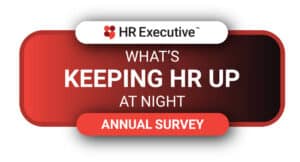The idea of company DEI was a divisive one in 2024—and it’s not trying just like the surroundings will turn into any extra unified this 12 months. The headlines in the previous few weeks inform the story: Quick meals large McDonald’s grew to become the most recent company to announce it could transfer away from acknowledged range objectives; but, just a few days beforehand, the board of administrators of Costco—the fifth-largest employer on this planet—unanimously voted towards a shareholder proposal to judge and think about the “dangers” of its DEI work.
Costco’s board blasted the proxy proposal from a conservative assume tank for its “broader agenda”: the “abolition of range initiatives.”
The retailer’s place seems as one thing of an aberration in current months, as giant organizations like Walmart, Lowe’s and John Deere have introduced plans to roll again DEI programming. And with an incoming federal administration that has acknowledged opposition to the ideas of DEI work, the panorama for organizations seeking to keep the course on DEI might get much more difficult.
“I believe one of the vital controversial areas of the HR career as we speak is inclusion and variety,” says Melissa Anderson, government vice chairman and chief individuals and transformation officer for specialty chemical compounds manufacturing firm Albemarle.
Along with her work at Albemarle, Anderson can be a board member and previous chairwoman of SHRM. The world’s largest HR affiliation drew sharp criticism from throughout the career this summer season when it dropped the phrase “fairness” from its DEI technique work.

It’s a transfer that has been mirrored in company DEI shifts as organizations dial again the emphasis on range and fairness that exploded within the wake of the 2020 homicide of George Floyd and as an alternative prioritize inclusion.
“SHRM has taken plenty of provocative stances that, if I used to be left by myself, I most likely would’ve gone down a distinct path,” says Anderson, a lately inducted Fellow of the Nationwide Academy of Human Sources.
Anderson calls the SHRM announcement “very well-intended,” however she notes it “didn’t have the anticipated influence. Actually, it has precipitated extra of a backlash in some areas.”
Nonetheless, Anderson says, she “listened and appeared on the information” and appreciates that there’s “a whole lot of proof that claims what we’re [currently] doing [on corporate DEI] isn’t optimum. There are alternatives to enhance it.”
Regardless of the criticism, SHRM’s transfer highlighted for Anderson the challenges and alternatives of transferring away from typical HR approaches.
“For me, I might say the SHRM expertise taught me that it’s simple to fall again on conventional considering and conventional options that helped you prior to now,” she says, “however it’s a must to be prepared to innovate and take into consideration issues with a recent set of eyes.”
In response to HR Govt’s current What’s Holding HR Up at Evening? analysis, HR professionals are certainly rethinking DEI methods.
 As an illustration, solely about 3% of the roughly 400 HR professionals polled cited DEI as a prime HR problem in 2024, in comparison with practically 6% the earlier 12 months—a big drop from the greater than 11% of HR professionals involved about DEI in 2020.
As an illustration, solely about 3% of the roughly 400 HR professionals polled cited DEI as a prime HR problem in 2024, in comparison with practically 6% the earlier 12 months—a big drop from the greater than 11% of HR professionals involved about DEI in 2020.
In the latest survey, when requested the place they have been spending most of their time, simply 1.5% of HR execs pointed to DEI—a determine that was greater than double the earlier 12 months and practically 10% in 2020. And HR leaders don’t appear involved about their means to ramp up this work: Simply 0.7% mentioned they want extra workers to deal with DEI technique, in comparison with greater than 3% in 2023—and 10% 5 years in the past.
On the identical time, there seems to be a continued willingness to make use of DEI as a expertise attraction software, as practically one-third of respondents mentioned they wish to leverage DEI technique to enhance worker expertise and retain expertise within the coming 12 months.
That will recommend the center of the DEI problem going through HR in 2025: executives and boards who wish to transfer away from conventional DEI methods of the previous few years—and HR leaders who nonetheless acknowledge the expertise influence of a powerful DEI technique.
Alternative: the important thing to driving ahead inclusion
HR leaders involved concerning the implications of publicly pulling again from DEI commitments will should be notably strategic in the case of how they impart to present and potential candidates about DEI technique, Lorrie Lykins, vice chairman of analysis for i4cp, lately instructed HR Govt.
Past messaging, as organizations look to recalibrate DEI methods to give attention to inclusion, they will even must look outdoors the normal DEI lens to make that work real—together with by bolstering worker help and firm tradition, Anderson says.
As an illustration, because the wealth divide within the nation continues to develop, HR could also be challenged to safe worker buy-in for inclusion efforts if a good portion of the workforce is struggling to have their fundamental wants met.
“Should you’re anxious about issues like meals shortage or not having well being advantages for your loved ones—all the issues that folks residing on the poverty degree are battling—it’s onerous to care about all of the issues we would like them to care about in the case of creating an inclusive surroundings,” she says. “It’s onerous to care about others like we would like individuals to in the event that they’re not feeling protected and safe themselves.”
One of the crucial sustainable methods to drive an inclusion-focused technique sooner or later is by making certain all staff “see the alternatives for a productive life” with the group, Anderson says. She factors to the success of recruitment efforts like eradicating academic necessities and incorporating previously incarcerated candidates. Such work will be strengthened with ongoing funding into worker coaching and improvement, she provides.
“An enormous piece of what’s damaged with DEI proper now’s that folks don’t really feel like they’ve the chance to achieve success and see a path ahead for themselves,” she says. “All of that must be solved to ensure that individuals to really feel safe—and as soon as they really feel safe of their monetary and general wellbeing, that’s once they can actually begin to care extra about others.”



